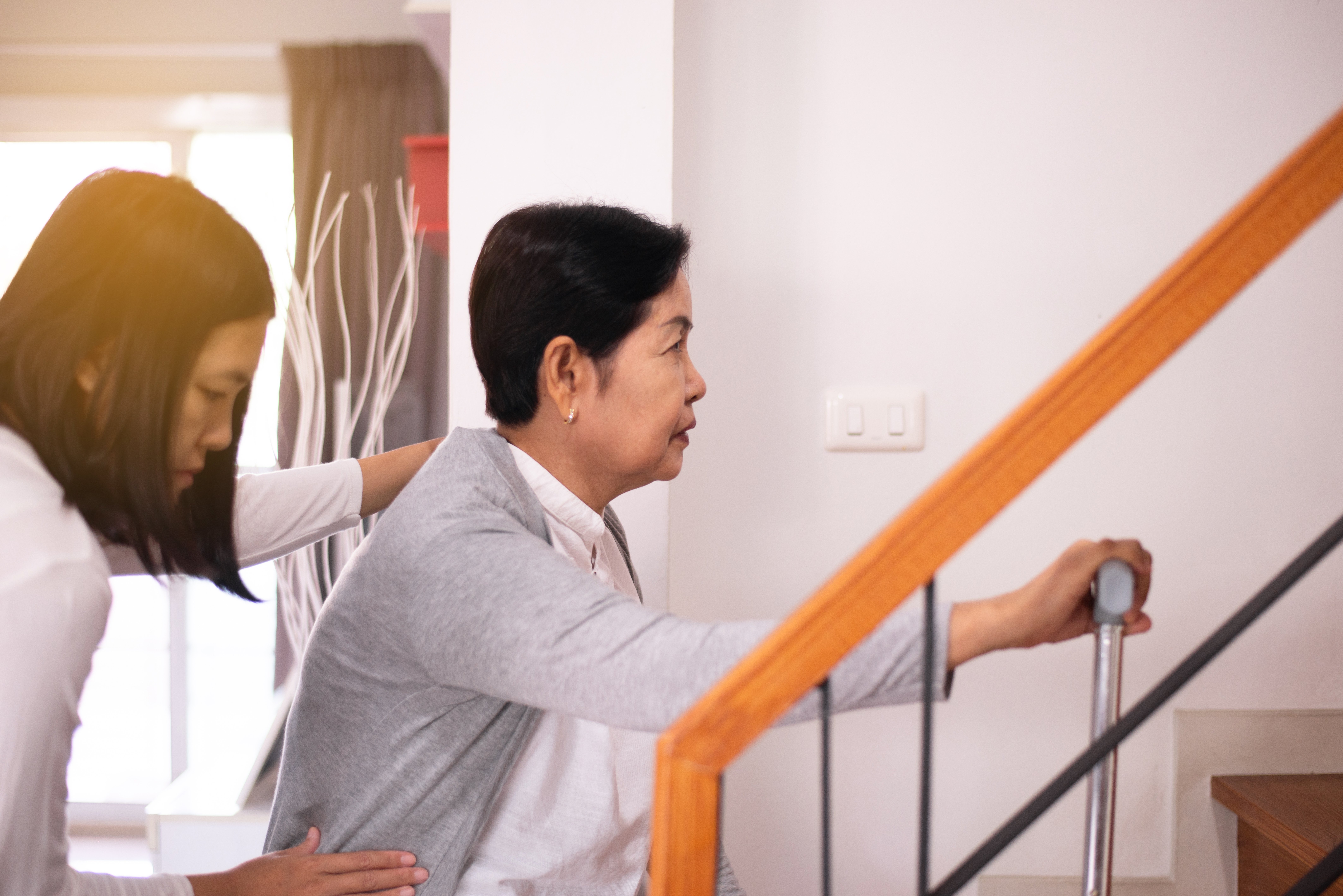Things to consider when caring for someone with a disability
by Megan Marolf | Jul 26, 2021 | in-home care, living with disability, seniors with disabilities | 0 Comments

National Disability Day honors the day when the Americans with Disabilities Act became a law. The civil right legislation increased access and opportunities and prohibits discrimination for people with disabilities.
Last year marked the 30th anniversary of the ADA, which was signed into law by President George H. W. Bush.
The Act also protects millions of seniors in the U.S.
According to the ADA National Network, “more than 30 percent of Americans over the age of 65 have some kind of disability,” and more than 50 percent of people older than 75 have a disability.”
Caregiving for someone with a disability has its own unique challenges and opportunities for learning and growth. Read on to learn about some of them below.
Disabilities of older people that may require caregiving
The Americans with Disabilities Act defines a disability in legal rather than medical terms.
For protection under the ADA, “one must have a disability, which is defined by the ADA as a physical or mental impairment that substantially limits one or more major life activities, a person who has a history or record of such an impairment, or a person who is perceived by others as having such an impairment.”
Some of the disabilities listed by the Society for Human Resource Management include:
- Alzheimer’s disease
- Diabetes
- Cancer
- Intellectual disabilities
- Mobility impairments that involve the use of a wheelchair
- Deafness and blindness
Types of caregiving for people with disabilities

Learning about the disability of the person you’re caring for can go a long way in providing them with the right type of care. More education can prevent some turbulence of daily living and can also help you avoid any triggers.
The more informed you are, the better decisions you can make for you and your loved one.
Here are some common types of caregiving that someone with a disability might need:
- Appointment transportation
- Companionship
- Meal preparation
- Help with communication
- Personal grooming
- Medication reminders
There’s also respite care for family caregivers who need a much-deserved break from full-time caregiving.
You can find more examples of different types of caregiving services HERE.
Keep a health journal
Keeping a daily journal can help to manage a person’s disability and adjust to make their daily life more comfortable. Journaling can also help you as a caregiver to manage your stress by ensuring your loved one is as healthy as possible.
Of course, the person you’re caring for can keep their own journal if they are able and up to the task.
Start by:
- Asking questions. How is your senior feeling? If their environment or routine has changed, notice how they react.
- Note what improves your loved one’s condition and what, if anything, aggravates it.
- If they take medication, note the side effects and what improves their health or makes it worse.
- Record any pain or scenarios that cause distress.
- Write down what activities your senior enjoys and schedule them for the future.
Jot down anything else that seems noteworthy, like behavior patterns in relation to certain people or situations.

Watch out for caregiver stress
According to UnitedHealthcare, family caregivers spend an average of 57 hours a week caring for someone with a disability. That’s more than a full-time job, so it’s easy to see why caregiving in this capacity can lead to exhaustion and mental health issues.
Ask for support. Soliciting for help from family and friends could allow you to maintain more balance in your life. Ask them to help you with particular tasks that are easier to delegate so that you can break away for some personal time.
Prioritize self care when you can. It sounds corny, but you can’t care for others if you’re not caring for yourself. Make sure you’re getting sleep, rest, and exercise whenever possible, and eat healthy to keep your energy and avoid illness. We know this is easier said than done a lot of the time!
SeaCare has a blog on tips for Avoiding Caregiver Burnout, which is a common side-effect of family caregiving.
Join an online support group. Support groups for caregivers can serve as a means to get more educated and to feel less isolated when caring for someone with a disability.
Choose the right in-home care company
Of course, it’s so important to find the right caregiver for someone who has a disability. Your loved one needs to feel comfortable, safe and at ease with their potential caregiver, and you need to feel good about the entire process.
Read SeaCare’s guide to the right type of care for you and you family HERE, or give us a call to see if we might be the right in-home care company for you.
As a small, family-owned business, the SeaCare team knows each client and their family well. We work to meet the needs of our clients and their families while maintaining a respectful relationship with our caregivers.
With this approach, we create healthy caregiving teams that benefit everyone involved.
Megan Marolf writes about senior topics and outdoor recreation from her home base in Seattle. You can read more about her here.
Resources:
https://familydoctor.org/caring-for-a-person-who-has-intellectual-or-developmental-disabilities/
https://adata.org/factsheet/ADANN-writing
https://www.ada.gov/ada_intro.htm
https://www.shrm.org/resourcesandtools/tools-and-samples/hr-qa/pages/cms_011495.aspx
https://www.uhccommunityplan.com/dual-eligible/caregivers/caregiving-for-people-with-disabilities
https://shemightbe.co.uk/10-ways-good-ally-disabled-people/
If you or a loved one you know are looking for additional support during this time and are interested in scheduling a free in-home assessment, please contact SeaCare In-Home Care Services today! A SeaCare family member is standing by. 425-559-4339.



0 Comments